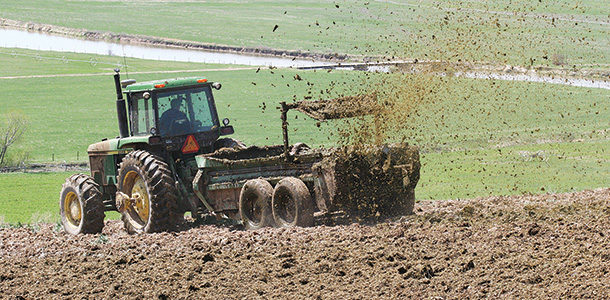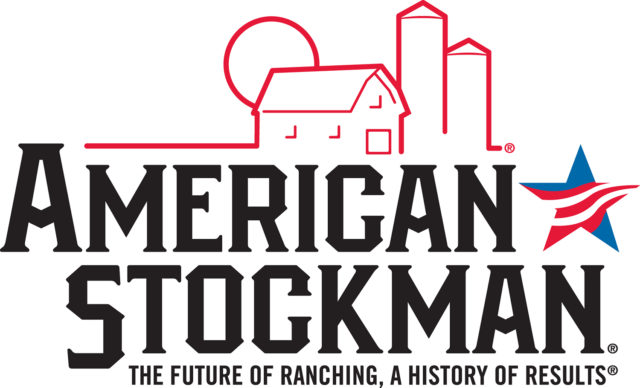I think we all know why it’s important to work closely with our nutritionist: Balanced rations simply make everything on the cow side run much smoother every single day.
Working with dairy producers on the crop and forage side for more than five years now, I think that one of the biggest opportunities that we have as dairy producers is to improve the cropping side of our operations. This is where your trusted local agronomy expert comes into the picture as the third member of your on-farm advisory team.
As a dairy producer, sometimes you have to play the role of veterinarian, sometimes that of nutritionist, but in both of those situations, you have someone on your team you can call for expertise who will be there for you when you need them. When it comes to agronomy and crops, I see too many producers trying to do it on their own.
Most of us don’t balance our own rations, so why are we trying to be the experts in balancing our cropping inputs? As technology in cropping has evolved, it has become harder and harder to keep up with new trends, technologies and management strategies.
As operations have grown, having the time to properly scout each and every one of our fields has become more difficult.
There are days when we all have trouble deciding which bull to breed a cow to, never mind choosing which hybrid we are going to trust in providing us with high-quality, high-yielding corn silage for the next year.
Having a member of your advisory team that can help you wade through the reams of information that is out there on crop production is an extremely valuable thing to have.
Why would I need an agronomist?
When deciding if using an agronomist is right for your operation, there are a few questions to ask yourself:
- Are you currently satisfied with the way your crops are being managed?
- Are you happy with the yields and quality that you are achieving?
- Are you confident that the cropping decisions you are making are the very best for both your land and your animals?
- Are your crop input costs in line with your yield and quality expectations?
- Are you confident that your fertility program is sustainable long-term?
- Is your spray program working both now and for a sustainable future?
If the answer to all of the above questions was yes, then you can stop reading, you likely are not an operation in need of agronomy help. If any of the six answers was a no, then having a local agronomy expert as part of your team could pay great returns for you.
You need an agronomy expert for the same reason that you need a vet and a nutritionist: because we can’t be experts in every field.
What does an agronomy expert do?
The role of an agronomy expert is to know your soil, know which crops you are growing and find the best combination of the two along with a fertility and pest management program to produce the highest yield and quality possible.
Suggestions often made by agronomists would include hybrid or variety selection, population, soil preparation, fertility plans, pesticide options and plans, and timing of application, along with many more helpful ideas.
With the huge number of variables involved with growing a great crop, having someone there to help determine how much value to assign to manure, or to help decide how often to soil sample, or how to interpret the results, or to help develop a fertility plan based on those results is very important.
Chances are most producers are not experts in these areas, as coming up with a great cropping plan is as complicated as balancing a perfect ration.
With the fast evolution of cropping technology, agronomists are able to help your operation take advantage of many tools that may not have been available to you otherwise.
GPS mapping of your fields both for soil sampling and yield results is just one example. New computer programs are allowing for variable rate fertilization and seeding rates using GPS technology.
Putting yield information obtained by the combine together at the end of the year to determine which hybrids performed best on which types of soils will help you make better planting plans and hybrid decisions for the following spring.
Providing you with a simple planting plan for each of your fields will help to ensure that the right seed and fertilizer will go on to each acre at the right rate come spring.
Where would I find an agronomic consultant?
Ask around. Chances are many of your neighbours, whether they are dairy or cash-crop farmers, are already using an agronomist of some description.
In most areas, you will find independent agronomists, seed experts who are also crop consultants, agronomy experts working for local input suppliers as well as agronomists working directly for various crop input companies.
Each of these experts has their pros and cons. Some charge on a per-acre basis, some provide their service as long as you buy their product.
In all cases, the most important factor when deciding which expert you want to work with is to find someone who will take the time to understand your operation, sit down and understand your goals, and then work closely with you to achieve them. It’s really no different from choosing your veterinarian or nutritionist.
You can also click here to find a certified crop adviser near you.
When I look at some of the top-producing, top-management herds in the country, there are a lot of differences – but some things remain the same.
They are not afraid to ask for help, and they don’t try to be experts in everything. When I look at the on-farm advisory team for some of the best operations, I see a three-legged stool, the veterinarian, the nutritionist and the crop specialist. Have you ever tried sitting on a stool with only two legs? It falls over pretty quickly. PD
PHOTO
What is your manure worth and how do you balance your fertilizer program around it? Photo by Ray Merritt.

- Robert Larmer
- DuPont Pioneer












